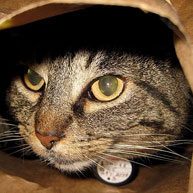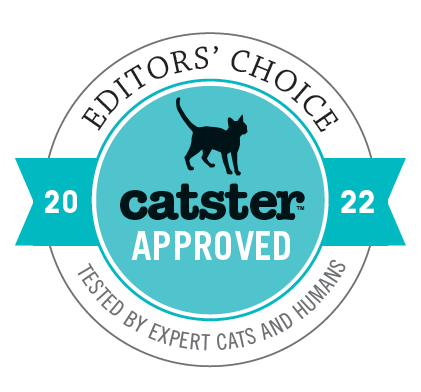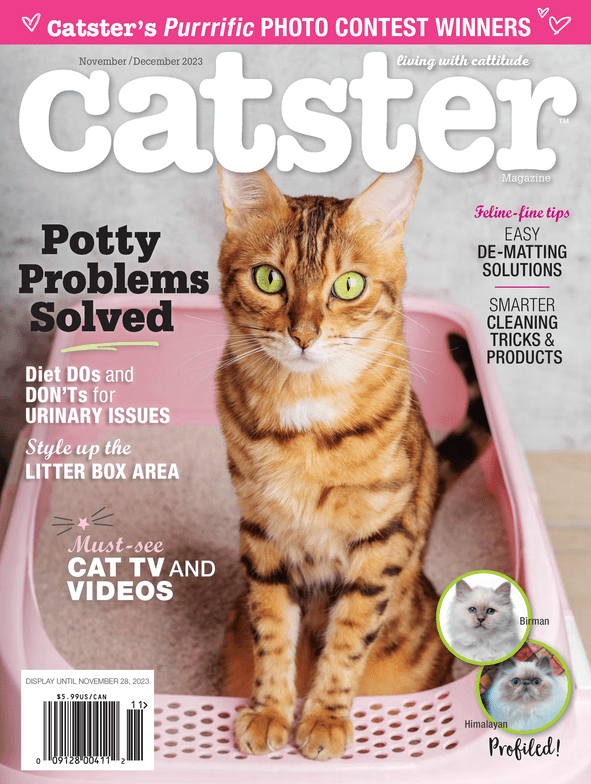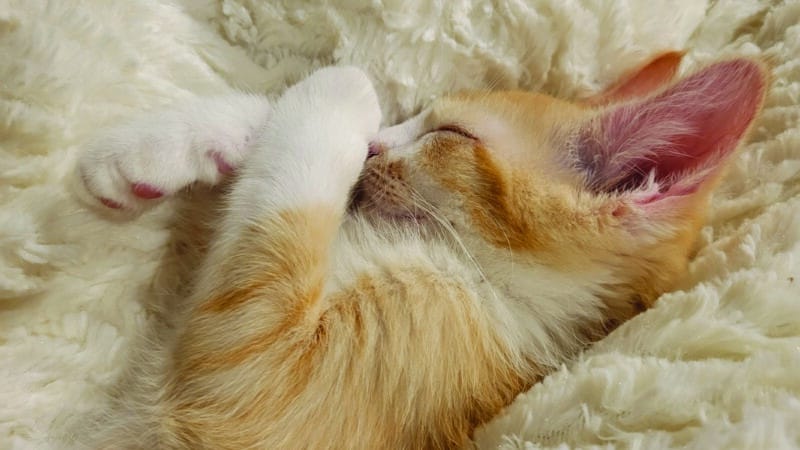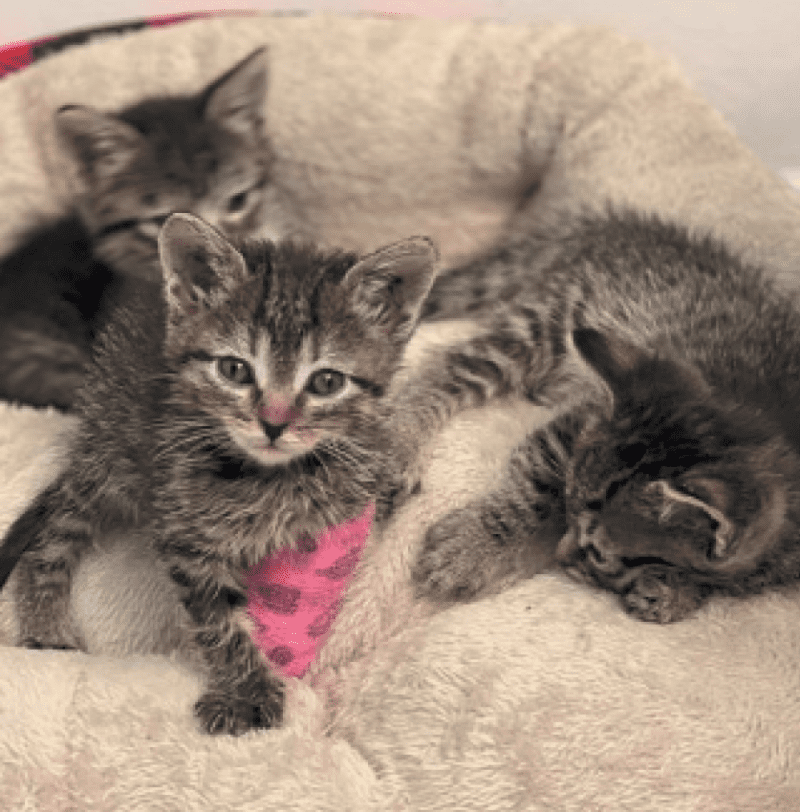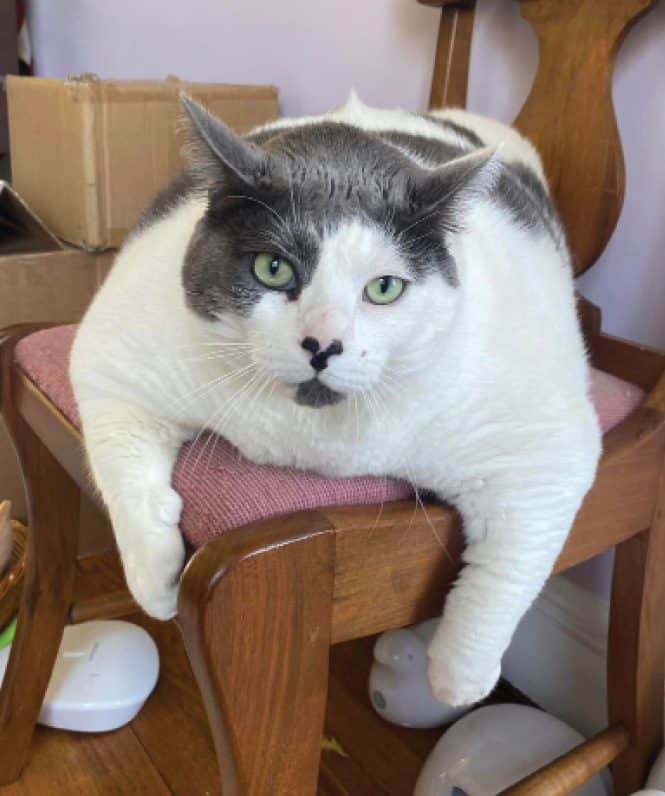In January, our vet called and said five words that I hope you never hear: “Your cat has breast cancer."
My stomach went into knots. My worst fears about the lump I had discovered in the “armpit” of our Sugar’s right front leg had just been confirmed. I was devastated.
When we adopted Sugar from the San Francisco SPCA on Super Bowl Sunday 2008, she was six years old. At the time, we had two kitties: Chai, a regal Lynx Point Siamese mix, and Little Bit, a playful tabby. Little Bit needed a playmate, and when we met Sugar we could tell she was the perfect fit, so we brought her home.
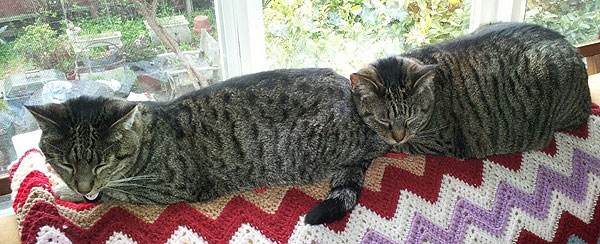
Sugar, a Catster member, quickly settled into our family and our lives. She is an absolute sweetheart and lives up to her name every day. She is very loving and connects with all our visitors. Even at 11 years old she is still a very playful kitty. She can have fun with anything — a tube of lip balm, a dust bunny, or a paper bag or box.

I was terrified when we learned that Sugar had mammary cancer, and if you’re familiar with it, you know why. Feline mammary cancer is very aggressive; 80 to 90 percent of the tumors are malignant. The numbers are better for dogs, with a 50 percent malignancy average.
Our vet referred us to San Francisco Veterinary Specialists, and we saw an oncologist the next day. He examined Sugar and recommended a lumpectomy and unilateral mastectomy. After some blood tests and an X-ray to see whether the cancer had metastasized to her lungs, everything was clear, so we took the next available surgical appointment, which was the following day.

Sugar’s surgery went well, and she spent one night at the hospital. She had a huge incision all the way down her belly, so when we brought her home we kept her in a separate room. We felt bad about isolating her, but she needed to be kept as calm and inactive as possible.
I spent a lot of time with Sugar while she was healing from surgery. I took my computer into her room and worked there most of the day. Each morning I got up an hour early so I could take a nap with her on the futon, and I would wake with her sweet face next to mine. After 10 days, she got her stitches out and was able to rejoin the household and resume her normal activities.
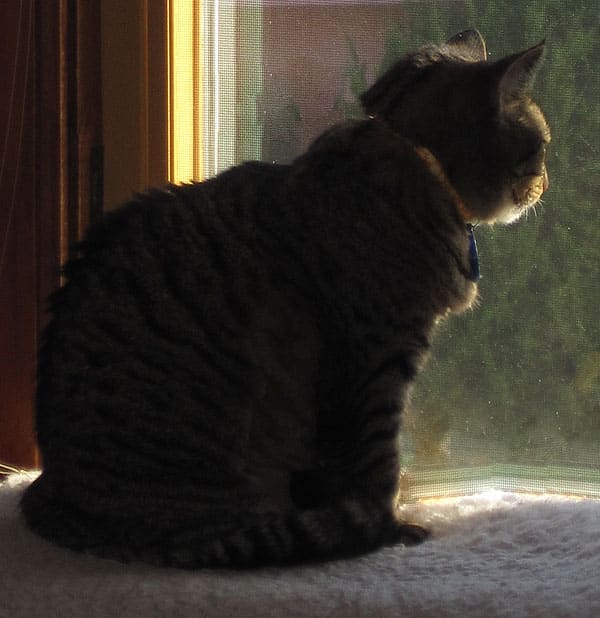
As I expected, the biopsy results revealed that Sugar’s tumor is malignant. However, it is a slow-replicating type of tumor, and there was no evidence that it had spread to her lymph nodes. For now, chemotherapy is not recommended, and she will be monitored very closely by her oncologist. She got a good report at her one-month checkup, and will return for another check in early May.
I knew about breast cancer in kitties because of Catster member Tallulah. In fact, I walked in the Susan G. Komen for the Cure twice, and both years Tallulah was my mascot. It was my way of helping Tallulah’s mom, Peggy, in her kitty breast cancer mission. At the time, I never dreamed that feline breast cancer would one day darken my door. But when it did I acted quickly because of Tallulah and Peggy.
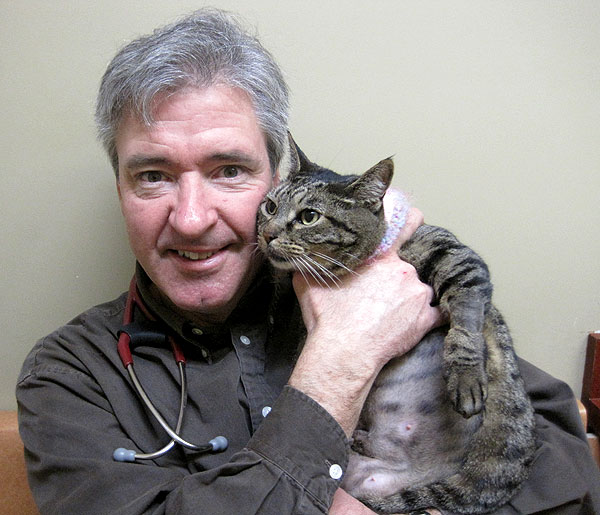
When I share the story of Sugar’s illness with people, I find that a lot of people, many of them pet owners, are still unaware that animals get breast cancer. Knowing the importance of early detection, this alarms and concerns me. So I have started an organization called Sugar Rub!
Sugar Rub! aims to:
- Increase awareness that animals get breast cancer;
- Encourage pet owners to perform regular breast exams on their pets;
- Raise funds for animal cancer research.
As with humans, early detection of cancer is critical. That’s why it’s important to be aware and give your pets a “Sugar Rub!” (a breast exam) at least once a month.
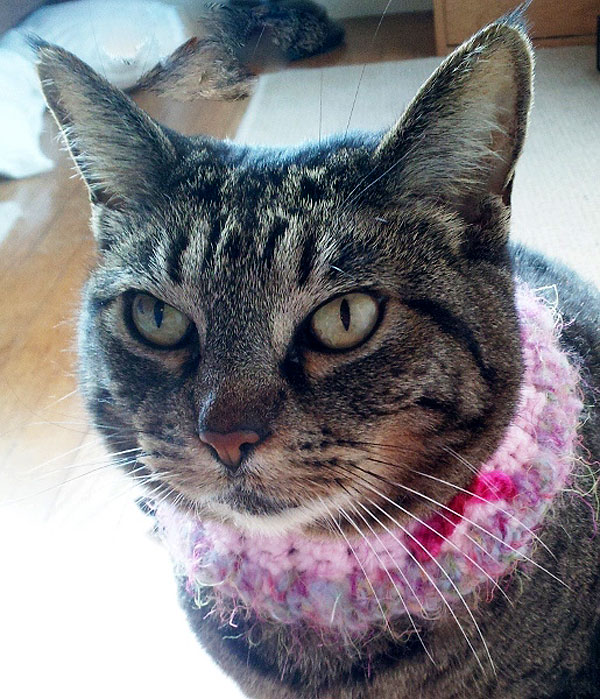
Getting your pets spayed and neutered early dramatically reduces the likelihood of their getting mammary cancer. However, for kitties like Sugar who miss that window of opportunity (she had not been spayed when she arrived at the SF SPCA), there is a great need for better treatment options. That’s why raising money for research is part of the Sugar Rub! mission.
I’ve met with veterinary oncologists from universities, and we hope to fund a research study on treatments for feline mammary cancer. Quite a bit of work has been done on canine mammary cancer, but very little for cats.
I am passionate and committed to the mission of Sugar Rub!, which you can also visit on Facebook. There are still a lot of pet owners who do not know that their beloved pets can get mammary cancer and that they need to be checked at least once a month.
I pray every day that we caught Sugar’s cancer in time.

